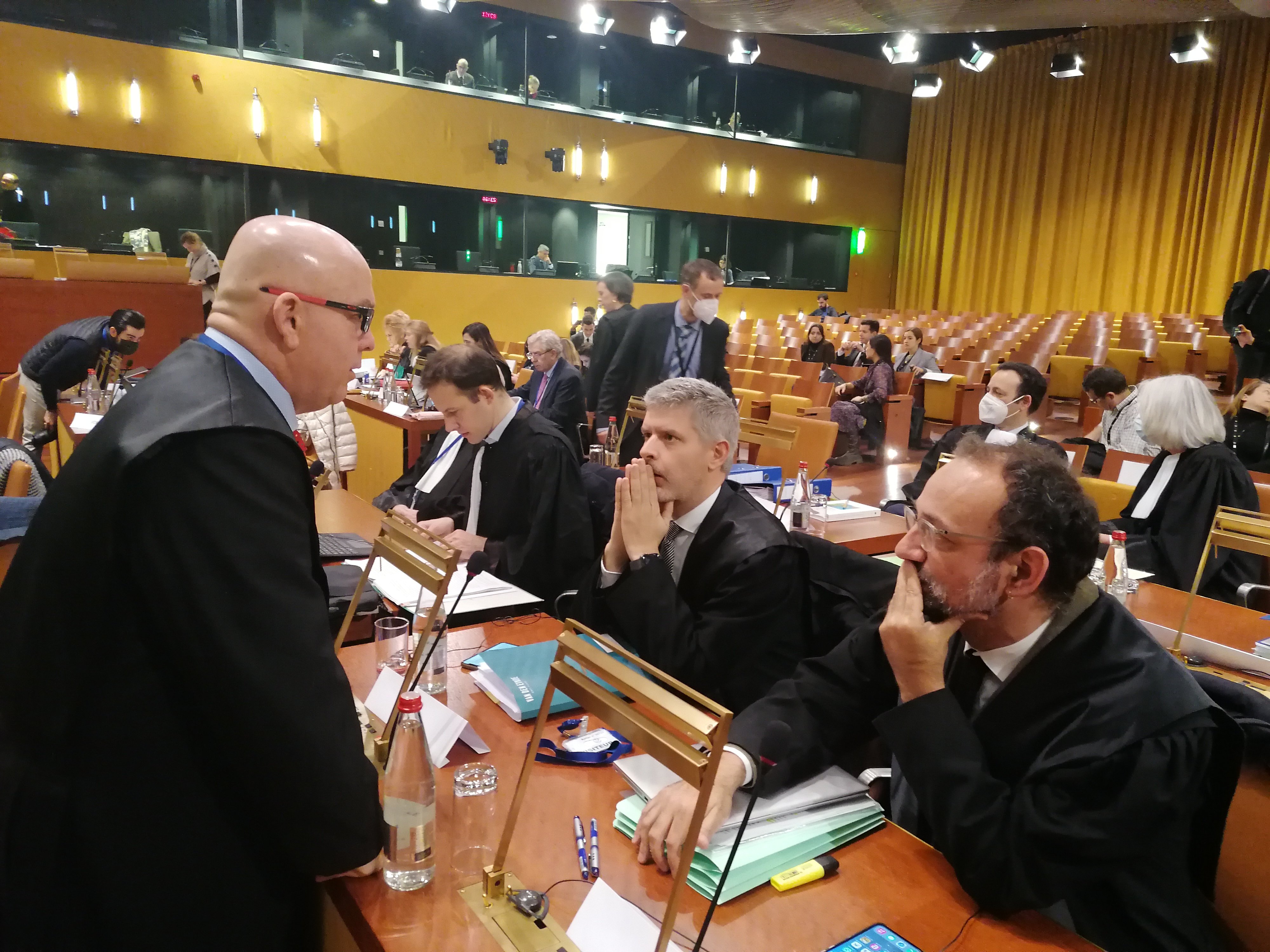A new danger. The unexpected announcement today that the Spanish prime minister, Pedro Sánchez, and the minister of defence, Margarita Robles, have also been spied on by Pegasus software and have laid a complaint with the senior Spanish criminal court, the National Audience, could lead all Catalangate complaints to end up in this court, instead of the court in Barcelona that already has a case open against Pegasus. The jurisdiction assumed by the National Audience is over cases that occur in different parts of the national territory and for the most serious crimes. Initially, the lawyers who have prepared the complaints by those in Catalan pro-independence circles who are targeted do not see any "connection" between the cases until it is proven that the perpetrator of this mass espionage "is the same". The unification of cases could be requested by the public prosecution service itself. An accusation of a crime against the institutions of the state seems possible, as both the Spanish PM and the Catalan president, Pere Aragonès, have been spied on, and this fact could favour the unification of the case.
In the case of espionage against the Spanish government, the duty judge of the National Audience's central investigating court number 4 has resolved that the complaint by Sánchez and Robles, filed by the state solicitors' office, is to be delivered to the senior investigating judge at the court in order to decide the distribution of the case, a common action where there is no clear date for the denounced criminal facts. But in this complaint to the National Audience, a date is indicated via the mobile devices of Sánchez and Robles, whose devices were hacked by the Pegasus software, between May and June 2021. The charges being laid in the complaint have not been detailed.
With regard to the Catalangate cases, the complaints of those affected within Òmnium Cultural and the CUP party have been filed with the judge of Barcelona investigative court number 32 because he already has a case open over the Pegasus espionage, since October 2020, hearing the complaints of the current Catalan minister and former speaker of the house, Roger Torrent, and ERC city councillor and former minister Ernest Maragall. The first step, now, is for Barcelona judge Juan Antonio Cruz to ask the prosecutor about the evidence requested by the private prosecutions. The offences reported are against privacy and against the production and use of this spyware. In the two cases, lawyer Benet Salellas asserts that the espionage against the Catalan pro-independence politicians has been carried out or permitted by the Spanish government and its agencies.
Suspicions
Specifically, in the Òmnium and CUP complaints, Salellas states that the long period of time over which the attacks took place, as well as the importance of the people targeted “lead one to rule out that this is a clandestine operation by a third country or third party, since if so, it would have been discovered precisely by Spain's CNI intelligence agency itself or by other cybersecurity agencies”. He also states that the nature of the government's reaction, with its measures and statements, "tends to confirm the hypothesis made in the Citzen Lab report indicating the Spanish government and the agencies depending on it as responsible for the espionage" against his clients. Due to this, he has asked the judge to demand information from the direction of the National Intelligence Centre (CNI), the Civil Guard and the National Police Force (CNP) as to whether their bodies used Pegasus.
Tsunami, the precedent
The decision on the destination court of the Pegasus espionage against the prime minister could fall to judge Manuel Garcia Castellón, head of the National Audience's central investigating court number 6, who since 2017 has been investigating the Catalan independence movement in a case which has been maintained under an order of confidentiality, which it is asserted involves investigation of many people. It even includes as a separate part of the case, also declared confidential, the investigation of the protest platform Tsunami Democràtic, which in turn led to the opening of the Volhov case by a Barcelona judge, in which the main individuals under investigation are the former CDC politician and businessperson David Madí, and the ex-minister of ERC, Xavier Vendrell. In the Tsunami case, the criminal chamber of the National Audience has renewed the confidential status, in recent months, assuring that rogatory letters, requesting information from foreign justice systems, are pending.
Lawyers for the Catalan cases, for now, do not see that a connection can be drawn between the cases, as "the people affected are different and so are the targets of the espionage." If the same authors of the offence were credited, it would be more likely. If Catalangate is elevated to the National Audience, however, they doubt that anything will be clarified.

